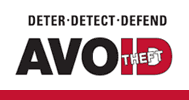I.I.I. Offers Crime Prevention and Insurance Tips to Weary Shoppers
 New York, NY – With everything easily available from wines and perfumes to electronics and toys, online shopping is an increasingly attractive alternative to braving the local mall during the holidays. However, it can also pose a risk to your identity, according to the Insurance Information Institute (I.I.I.).
New York, NY – With everything easily available from wines and perfumes to electronics and toys, online shopping is an increasingly attractive alternative to braving the local mall during the holidays. However, it can also pose a risk to your identity, according to the Insurance Information Institute (I.I.I.).
As online shopping becomes increasingly popular, more and more people are going to the Internet to take care of their holiday purchases. Seventy-two percent of U.S. online consumers say they will shop online for holiday gifts this season, according to exclusive research conducted for Internet Retailer. And this year’s Cyber Monday (the Monday after Black Friday, a focus point for online holiday retail sales promotions) was a case in point, proving to be the busiest online-shopping day in U.S. history, with sales reaching $1.03 billion, up 16 percent from a year ago, according to comScore Inc.

“The hustle and bustle of the holidays creates the perfect environment for thieves bent on stealing your credit cards or other financial information,” said Loretta Worters, vice president, I.I.I. “Online, people are rushing to place an order and may not be aware that they are ordering from a non-secure site. In the malls, shoppers are tired, stores are crowded and it’s easy to become less guarded about personal information such as credit cards, personal checks, driver’s licenses and social security numbers.”
Most home and renter policies provide coverage for theft of money or credit cards; however, the amount of coverage is limited (usually $200.00 in cash and $50.00 on credit cards). It should be noted that once you have reported the loss or theft of your credit card to the issuing company, you are responsible for only $50.00 of unauthorized use.
Some companies now include coverage for identity theft as part of their homeowners insurance policy. Check your policy to find out. Others sell it as either a stand-alone policy or as an endorsement to a homeowners or renters insurance policy which can run about $25.00-$50.00 annually. Identity theft insurance provides reimbursement to crime victims for the cost of restoring their identity and repairing credit reports. It generally covers expenses such as phone bills, lost wages, notary and certified mailing costs, and sometimes attorney fees (with the prior consent of the insurer). Some companies also offer restoration or resolution services that will guide you through the process of recovering your identity.
Identity thieves take personal information and use it to impersonate a victim, stealing from bank accounts, establishing phony insurance policies, opening unauthorized credit cards or obtaining unauthorized bank loans. In some more elaborate schemes, criminals use the stolen personal information to get a job, rent a home or take out a mortgage in the victim’s name.
Use of stolen credit card numbers is among the most common forms of identity theft, but some schemes use electronic means, including online scams like ‘phishing’, in which thieves use email inquiries purporting to be from financial or other online organizations, to obtain sensitive account information. Others might use more old-fashioned methods, such as ‘dumpster diving’—rooting around in people’s garbage to collect financial information.
 Many credit card companies are now using radio-frequency identification (RFID) chips in their credit cards instead of magnetic stripes. The advantage is quicker, more efficient transactions, especially those carried out at traditionally cash only retail outlets, such as fast-food restaurants or convenience stores. However radio frequency identification may make it possible, in some cases, for identity thieves to use a simple electronic device to capture the information. The scariest part is that it can happen right in your presence, without you even knowing it.
Many credit card companies are now using radio-frequency identification (RFID) chips in their credit cards instead of magnetic stripes. The advantage is quicker, more efficient transactions, especially those carried out at traditionally cash only retail outlets, such as fast-food restaurants or convenience stores. However radio frequency identification may make it possible, in some cases, for identity thieves to use a simple electronic device to capture the information. The scariest part is that it can happen right in your presence, without you even knowing it.
Victims of identity theft are often left with lower credit scores and spend months or even years getting credit records corrected. They frequently have difficulty getting credit, obtaining loans and even finding employment. Victims of identity theft fraud often travel a long and frustrating road to recovery; depending on the severity of the identity theft fraud damage, the recovery process can take anywhere from a few weeks to several years.
“With so much increased spending this time of year, consumers should carefully monitor their credit card bills and bank balances to make sure that they actually made all of the purchases,” said Worters. In fact, the Federal Trade Commission (FTC) reports that 52 percent of all identity theft victims discovered that their identity was stolen by monitoring their accounts.
To protect your hard-earned money this holiday season, the I.I.I. has the following tips.
Online Shopping
- Use only authenticated websites to conduct business online . Before submitting personal or financial information through a website, check for the locked padlock image on your browser’s status bar or look for “https://” (rather than http://) in your browser window. If you have any concerns about the authenticity of a Web page, contact the owner of the site to confirm the URL.
- Be careful with your passwords. Use ‘strong’ passwords that contain both letters and numbers and change these passwords frequently.
- Be aware of phishing and pharming scams. In these scams, criminals use fake emails and websites to impersonate legitimate organizations. Exercise caution when opening emails and instant messages from unknown sources and never give out your personal or financial information via email.
- Make sure you have firewall, anti-spyware and anti-virus programs installed on your computer. These programs should always be up to date.
Shopping At The Mall
- Monitor your accounts. Don’t rely on your credit card company or bank to alert you of suspicious activity. Carefully monitor your bank and credit card statements to make sure all transactions are accurate.
- Shred, shred, shred. Tear or shred any documents that have personal information such as credit card numbers, bank statements, charge receipts or credit card applications, before disposing of them.
- Keep the amount of personal information in your purse or wallet to the bare minimum. Avoid carrying additional credit cards, your social security card, check book or passport unless absolutely necessary.
- Guard your credit card when making purchases. Shield your hand when using ATM machines or making long distance phone calls with phone cards. Don’t fall prey to ‘shoulder surfers’ who may be nearby. Always check who is around you—identity thieves have been known to copy credit card information or even take pictures of cards on their cellphone cameras.
- Always take credit card or ATM receipts. Don’t throw receipts into public trash containers or leave them on the counter.
In order to make it more difficult for identity thieves to open accounts in your name, you can also contact the fraud department of any of the three credit reporting agencies to place a fraud alert on your credit report—by law, the agency you contact is required to contact the other two agencies. The fraud alert tells creditors to contact you before opening any new accounts or making any changes to your existing accounts. The three major credit bureaus are Equifax, TransUnion and Experian.
If you are the victim of a crime, report it to the credit card company and police immediately. Ask for a copy of the police report. You will need it if you want to file an insurance claim or report the crime to the FTC for their assistance. Victims of identity fraud can contact the FTC online or at 877-IDTHEFT.


